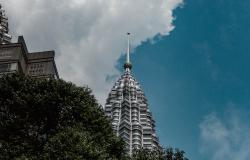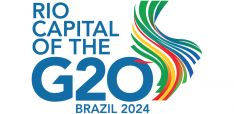Britain’s new Asia trade pact could be targeted by militants in Southeast Asia

Maurizio Geri argues the British government may well want to facilitate a new Asia-Pacific regional counter-terrorism framework.
Britain’s entry into the 11-country Comprehensive and Progressive Agreement for Trans-Pacific Partnership (CPTPP) – a free-trade agreement with Australia, Brunei, Canada, Chile, Japan, Mexico, Peru, New Zealand, Singapore, Vietnam and Malaysia – has been lauded as the biggest trade deal since Brexit. But it comes at a time when the Asia-Pacific could see an escalation of separatist movements and Islamist militancy – and the pact itself might motivate these movements to see Britain as a target.
The staging point for this militant resurgence in Southeast Asia could be Sabah, a state in eastern Malaysia which has been frequently targeted by militants based in the remote Sulu islands in the southern Philippines, which has so far not joined the CPTPP despite interest in doing so. Although a string of recent counter-terrorism victories has caused many analysts to assume the region is entering a new era of stability, evidence on the ground points to risks that tensions could be inflamed.
The US State Department’s latest annual country report on terrorism released earlier in March warns that despite progress, the so-called Islamic State in Iraq & Syria (ISIS) remains the deadliest threat in the Philippines, making the country a major target destination for foreign terrorist fighters.
ISIS factions in East Asia include Daulah Islamiya-Lanao (aka Maute group), Daulah Islamiya-Maguindanao, Daulah Islamiya-Soccsksargen, Abu Sayyaf in Sulu, elements of Bangsamoro Islamic Freedom Fighters and rogue elements of the Moro Islamic Liberation Front.
Although the Philippine military has been highly successful in degrading Abu Sayyaf’s military capabilities, these welcome successes could be rapidly overturned.
Abu Sayyaf and ISIS will view Britain’s entry into the CPTPP as a further threat to its aspirations for an independent Islamic state in western Minanao and the Sulu archipelago. As terrorist networks have consistently used Sabah in CPTPP-member Malaysia as a staging point, we may see heightened risks that militant movements will remobilise there from the Sulu provinces.
These risks can only be truly grasped when we recall the recent history of violence on the sea between Malaysian and the Philippines.
The first major outbreak occurred in April 2000, when Abu Sayyaf militants from the Sulu archipelago stormed the resort island of Sipadan in the Malaysian state of Sabah, kidnapping 21 tourists and resort workers leading to a six-month hostage crisis.
The ensuing decade saw a wave of kidnappings before a new crisis erupted in February 2013, when Sabah was invaded by over 200 armed followers of Jamalul Kiram III, the late self-proclaimed Sultan of Sulu, in an attempt to enforce an ancestral claim over Sabah. The resulting clashes which occurred in the Lahad Datu district left 71 dead.
Complicating matters further, the incursion was condemned by Muedzul Lail Tan Kiram, who also claimed to be the Sultan of Sulu and who described Jamalul as “one of the many self-styled and illegitimate Sultans of Sulu”. The Sultanate disappeared in the early twentieth century, leaving a large number of descendants who still claim the royal title.
Since then, there have been sporadic outbreaks of violence amidst intelligence suggesting an ongoing risk of another incursion. From 2014 to 2016, Abu Sayyaf launched a wave of piracy attacks off the Sabah coastline involving further kidnappings. By 2017, evidence emerged of ISIS using Sabah as a transit point to funnel jihadists from across the region to Abu Sayyaf’s stronghold in the Philippine’s Marawi City.
Two years ago, intelligence reports confirmed that a senior local government official in the Sulu province of the Philippines had hosted a secret meeting with 19 mayors to discuss plans for recruiting 600 men into a “Royal Sulu Army” ready to reinvade Malaysia’s Sabah to revive the Sultanate of Sulu.
There is also unsettling evidence that the lines between Muslim separatists, Islamist extremists and Philippine militants who believe in the ancient Sultanate’s claim over Sabah are frequently blurred.
For instance, Nur Misuari, the founder of the Moro National Liberation Front (MNLF) - a Muslim separatist movement in the Philippines designated as a terrorist group by the government of Malaysia – declared his support at the time for the 2013 Lahad Datu invasion of Sabah by Jamalul Kiram III.
Several followers of Misuari were suspected to have joined these forces in Sabah during the incursion at the time. Former Philippine military general Florencio Fianza argued that Misauri most likely helped instigate the invasion “as a last ditch effort” to slow down or derail the Bangsamoro peace deal brokered by Malaysia between the Philippine government and the MNLF splinter group, the Moro Islamic Liberation Front.
Although the MNLF distances itself from Islamist extremists, Misauri has high-level ties to them. In August 2020, for instance, he was caught flying on a private jet to Davao City in the company of a notorious Abu Sayyaf commander, Abduljihad “Edang” Susukan – ‘wanted’ on dozens of charges for murder and kidnapping.
These blurred lines between followers of the proclaimed heirs of the Sultanate of Sulu, the Moro National Liberation Front, and other Islamist extremist groups – cast an unnerving light on a major legal case between nine alleged Sulu Sultanate heirs and the government of Malaysia, which last year resulted in a $15 billion award against Malaysia on behalf of the claimants.
The Sulu legal case was financed by unidentified Western investors organised through the London-based litigation financing firm Therium. Although these investors will take the majority of profits from the multibillion dollar claim, if it succeeds the claimants would still receive millions.
The prospect of such funds being available to descendants of the late Sultan raises the question of whether some of it could end up in the hands of more militant networks.
Their lawyers have claimed that it is “reckless and irresponsible” to insinuate that the Sulu heirs are “fighting a proxy legal battle for extremists who launched a violent attack” on Sabah in 2013. While that may well be the case, this does not address the question of what safeguards are in place to prevent potentially millions of dollars the claimants acquire from spreading to separatist or terrorist networks? Given the evidence of fluid overlaps between followers of the late Sultan and militant groups in Sulu including Nur Misuari’s MNLF and Abu Sayyaf, this is not an unreasonable question.
Although significantly weakened, Abu Sayyaf remains active in the Sulu region where military forces continue to be deployed to counter terrorist operations. February alone saw multiple clashes between Philippine police and pro-ISIS extremists.
One plausible scenario is that Muslim separatist movements in the Philippines seek to leverage the Sulu case and ISIS links to derail the Bangsamoro peace process. A new influx of funds would be a potential gamechanger for separatist movements, including the ailing Abu Sayyaf network. And Britain’s entry into the CPTPP may provide new motivation for the latter to ramp-up operations.
Regional governments will therefore want to look deeper into the overlaps between militant networks planning another invasion of Sabah on behalf of the Sultanate of Sulu, separatist movements operating in the Philippines, and Islamist groups like Abu Sayyaf.
Both the Malaysian and Philippine governments in particular should be careful not to allow pressures from these disparate groups to create discord which could unravel the critical progress made so far on the Bangsamoro peace process. Both will need to ensure they can closely monitor these complex, interfacing militant movements. And to protect its new trade pact, the British government may well want to facilitate this by supporting a new regional counter-terrorism framework.
Dr Maurizio Geri is a former senior NATO analyst who has worked at the NATO Allied Command Transformation in the US, NATO Southern Hub in Italy and NATO HQ in Belgium, who previously served as an analyst in the Italian Defence General Staff. He is a recipient of the Marie Curie Global Fellowship for research on EU-NATO cooperation against Russian hybrid warfare in the context of the energy-resources-climate security nexus. He is also an associate fellow at South Asia Democratic Forum, at the Center for Media and Peace Initiatives and at the International Team for the Study of Security. He is the author of Ethnic Minorities in Democratizing Muslim Countries: Turkey and Indonesia (Palgrave Macmillan, 2018).
Photo by Iurii Laimin


